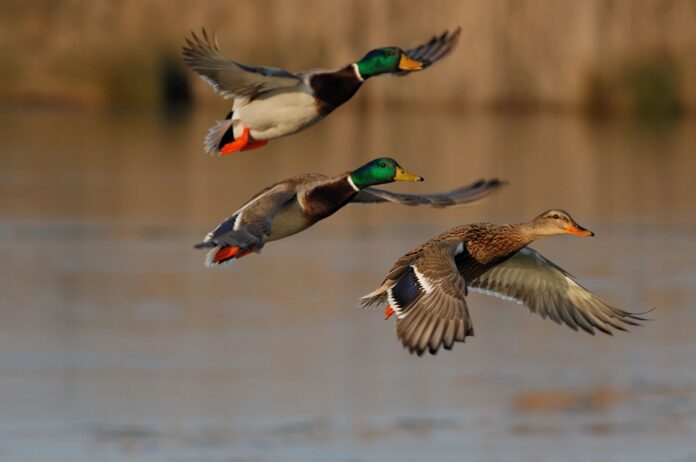Duck hunting is a popular and challenging outdoor activity that requires skill, patience, and an understanding of waterfowl behavior. If you’re new to duck hunting and eager to get started, this beginner’s guide will provide you with the essential information and tips to help you embark on a successful and enjoyable duck hunting adventure.
Table of Contents
1. Research Local Regulations and Obtain Necessary Permits
Before hitting the water, it’s important to familiarize yourself with the regulations and requirements for duck hunting in your area. Contact your local wildlife management agency or visit their website to learn about the legal hunting seasons, bag limits, and any special restrictions that may apply. Additionally, make sure to obtain the necessary hunting license and waterfowl stamps to comply with the regulations.
2. Learn about Duck Species and Their Habitat
Next, educate yourself about the different duck species that are commonly hunted in your area. Familiarize yourself with their identification features, behaviors, and habitat preferences. Understanding the characteristics and habits of different ducks will not only help you identify the birds in the field but also enhance your overall hunting success. Study field guides, attend workshops, or join online forums to learn from experienced hunters and waterfowl enthusiasts.
3. Gear Up with Essential Equipment
To get started with duck hunting, you’ll need some essential equipment. Here is a list of the basic gear you’ll need:
- Shotgun: Choose a shotgun that is appropriate for duck hunting. The most common gauges used for waterfowl hunting are 12-gauge and 20-gauge, but personal preference and comfort are key factors in selecting the right gun. Consider features such as the action type, barrel length, and overall weight. Ensure that your shotgun is capable of firing steel or non-toxic shot, as these are required for waterfowl hunting.
- Shotgun Shells: Purchase shotgun shells specifically designed for waterfowl hunting. Look for loads that are approved for use in your area, compliant with the regulations, and effective for harvesting ducks. It’s important to take into account the size of the shot and gauge that is suitable for your shotgun.
- Decoys: Decoys attract ducks by mimicking the appearance of resting or feeding ducks on the water. Start with a basic set of decoys, such as mallards or a mix of mallards and other common duck species found in your area. Consider adding a few floating motion decoys to create added realism and movement on the water.
- Blind: A well-concealed blind is crucial for camouflage and concealment while duck hunting. You can purchase a pre-built blind or construct one yourself using natural materials or with the help of commercial blind-building materials. Make sure your blind provides adequate coverage and blends in with the surrounding environment.
- Calls: Duck calls are essential tools for attracting ducks and communicating with them. Invest in a quality duck call and practice different calls and techniques to imitate various duck vocalizations. Start with simple calls, such as the mallard hen quack and feed call, and gradually learn more advanced calls as you gain experience.
- Waders: Wading through water is often necessary for accessing prime hunting spots or retrieving downed ducks. Invest in a pair of high-quality chest or hip waders that provide insulation, durability, and comfort. Choose the appropriate wader style based on the water depth and temperature you’ll be hunting in.
4. Scout Your Hunting Area
Once you have your gear ready, spend time scouting potential hunting areas. Look for locations with suitable water depth, food sources, and cover for ducks, such as duck hunting in Texas. Visit the areas at various times to observe duck activity, identify flight patterns, and determine the best spots to set up your decoys and blinds. Consider using aerial maps or online mapping tools to help identify potential hotspots. Additionally, seek advice from local hunters, conservation officers, or wildlife biologists to obtain valuable insights about the best hunting areas in your region.
5. Practice Shooting and Calling
To improve your chances of success, practice shooting and calling techniques before your hunting trip. Set up targets or visit a local shooting range to practice shooting at different distances and angles. Familiarize yourself with your shotgun’s pattern and effective range. Additionally, practice your duck-calling skills to attract and communicate with ducks. Watch tutorial videos or seek guidance from experienced hunters to improve your calling technique and repertoire of calls.
6. Plan Your Hunt and Safety Measures
Before your hunting trip, plan your hunt by considering factors such as weather, wind direction, and water conditions. Practice safe hunting practices by informing someone about your trip, using appropriate safety gear such as a life jacket, and adhering to firearm safety rules. Ensure that you have the necessary permits and licenses with you during your hunt.
7. Be Patient and Stay Observant
Duck hunting requires patience and attentiveness. Ducks are wary and have keen eyesight, so it’s important to remain still and quiet in your blind. Be observant and watch for signs of incoming ducks, such as flight patterns, vocalizations, or wing beats. Adjust your decoy spread or calling techniques based on their behavior. Remember, even if the ducks don’t come in as expected, every hunt offers an opportunity to learn and improve your skills.
In conclusion, getting started with duck hunting requires research, preparation, and practice. Familiarize yourself with local regulations, learn about duck species, gather the necessary equipment, scout potential hunting areas, and practice shooting and calling techniques. Always prioritize safety while hunting, and be patient and observant in the field. With time and experience, you’ll develop the skills and knowledge needed to become a successful duck hunter. Now, gear up and embark on your exciting journey into the world of duck hunting!








